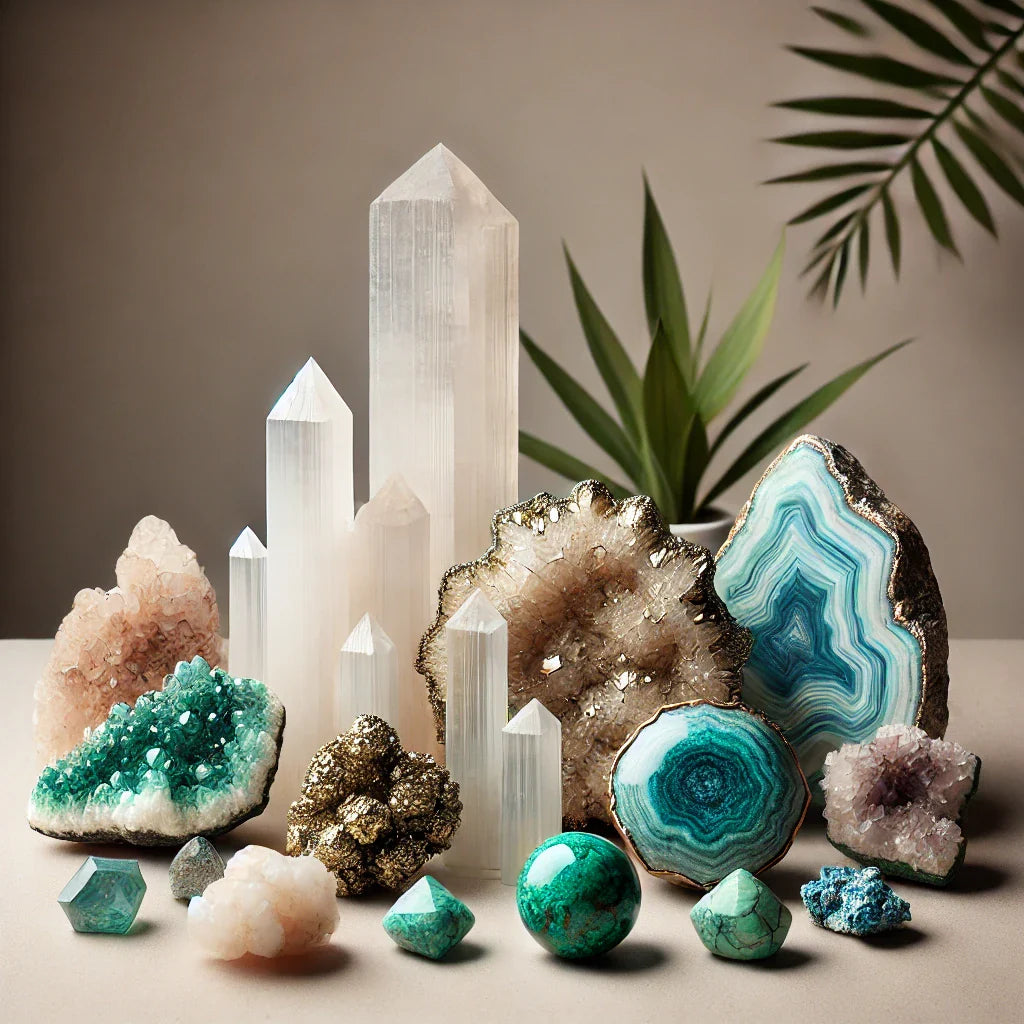
Minerals You Shouldn't Get Wet and Why It's Important to Avoid It
Share if you liked the content
Minerals You Shouldn't Get Wet and Why It's Important to Avoid It
When we think of minerals and crystals, it's easy to imagine them as indestructible materials due to their Earthly origins. However, many of them are surprisingly sensitive to water. In this article, we'll explore which minerals you shouldn't get wet and the reasons behind this recommendation.
Why should some minerals not get wet?
The interaction of minerals with water can be problematic for several reasons:
- Water solubility: Some minerals are soluble, meaning they break down or dissolve when they come into contact with liquids. This can damage both their structural integrity and their appearance.
- Structural sensitivity: Water can weaken the internal cohesion of certain crystals, making them more prone to breaking or shattering.
- Oxidation: In the case of minerals containing metals, such as pyrite, contact with water can trigger oxidation processes, generating corrosion or chemical alteration.
- Loss of properties: If you use crystals for energetic or spiritual purposes, it is believed that water can affect their ability to retain or emit energy.
Minerals that should not get wet
Below is a list of some of the most common minerals that are best kept away from water:
1. Selenite
Selenite is a gypsum crystal known for its delicate structure. This mineral is water-soluble, meaning that although it dissolves slowly, prolonged contact with it compromises its shape and texture. It's best cleansed using other methods, such as sage smoke or vibratory sounds.
2. Halite
Also known as rock salt, halite rapidly disintegrates when exposed to water. This mineral, composed of sodium chloride, literally dissolves, as water destroys its crystalline structure.
3. Chalcopyrite and pyrite
These metallic minerals should not be wet because water, combined with oxygen, can cause rust. This not only ruins their aesthetics (with rust stains) but also weakens their structure.
4. Malachite
Although malachite is not soluble in water, it is extremely sensitive to acids, which can be found even in tap water. Contact can dull its vibrant green color or damage its polished surface.
5. Azurite
Similar to malachite, azurite is sensitive to water, which can cause discoloration or visible wear on its surface.
6. Turquoise
Turquoise is a porous mineral that easily absorbs liquids, which can alter its color and texture. Exposing it to water can cause it to lose its vibrant blue hue and become brittle.
How to Clean Water-Sensitive Minerals
If you want to clean these minerals without damaging them, here are some alternatives:
- Smoking Methods: Use herbs such as sage or palo santo to pass smoke around the crystal.
- Dry salt cleaning: Place the mineral on a bed of salt (without it coming into direct contact with water).
- Solar or lunar energy: Leave the crystal in sunlight or moonlight to recharge and purify it.
- Sound: Use Tibetan bowls, bells, or tuning forks to energetically cleanse your crystals.
Conclusion
Although some minerals are water-resistant, many others require more delicate care to maintain their beauty and properties. Before cleaning or working with a crystal, learn about its composition and specific needs. With these simple precautions, you can keep your minerals in excellent condition for a long time.
Do you have any glass at home that you'd rather not get wet? Share your experience in the comments! 😊
